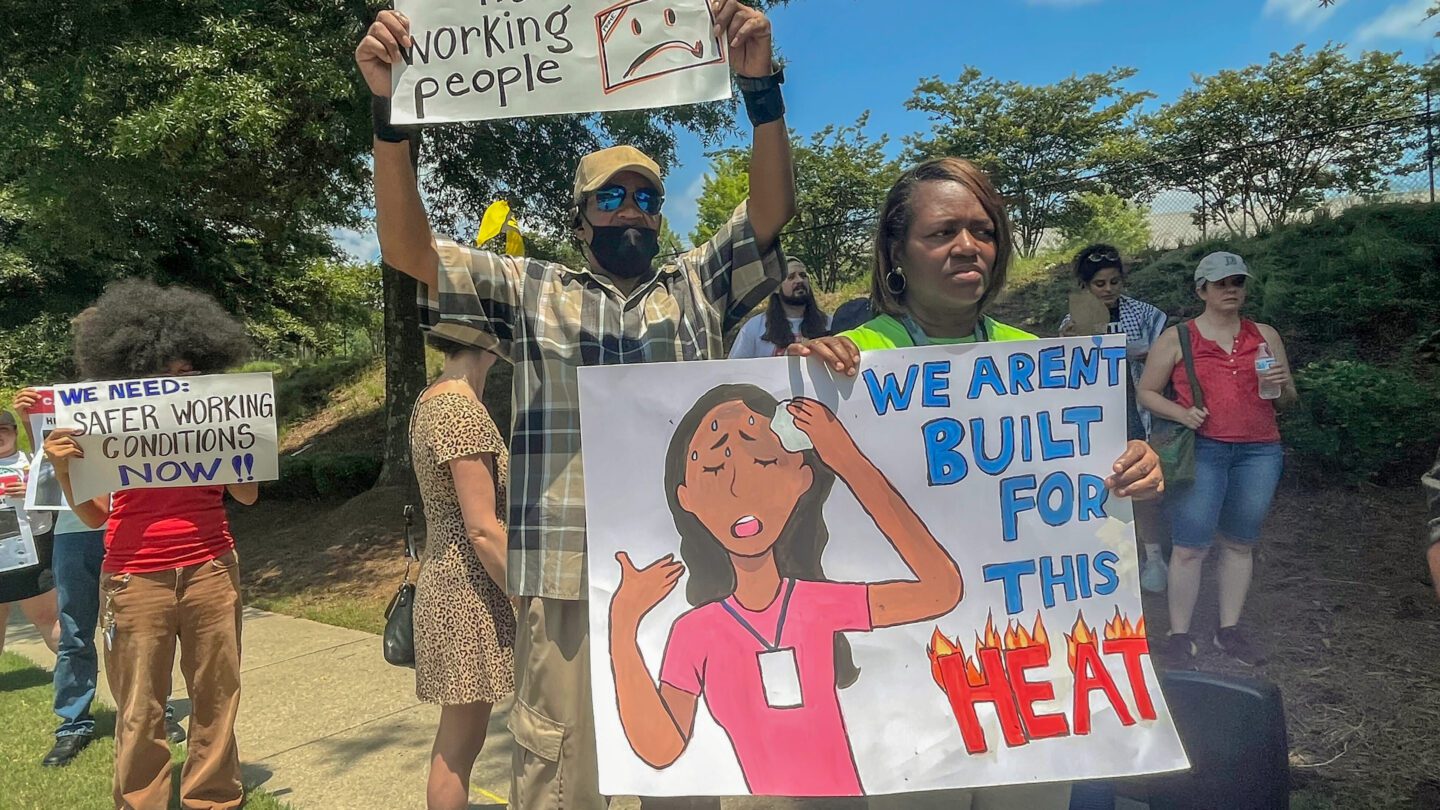On Wednesday, a group of Amazon workers in Atlanta picketed outside one of the company’s warehouses in East Point, calling for better working conditions and protection from extreme heat.
On the outskirts of the location’s security gate, picketing workers walk resolutely with signs in one hand and bottles of water in the other.
Joan Morris, an employee at the South Atlanta facility, states that on some workdays, the heat can become unbearable due to the lack of air conditioning.
“We had thermometers to measure how hot it was and it got as hot as 100 to 101 degrees inside the trailers and trucks,” she said.
Morris is one of several employees from this facility who, along with labor advocates, are asking the multi-billion dollar company for safer equipment, better ventilation and more access to cold, clean water.
This comes after workers say that they have brought up their concerns about heat to management to no avail.
“They don’t feel like they have sufficient training, and people are passing out in the warehouse, so clearly something is not working,” said Aliss Lugo, deputy director of organizing for labor organization United for Respect.
“They’re not even having some basic needs [met].”
In a June blog post, Amazon said its heat mitigation practices meet or exceed state requirements and federal guidance.
Amazon Spokesperson Eileen Hards said in an email to WABE that the protest was mostly attended by outside organizers and individuals who do not work for Amazon.
“Safety is, and always will be, our top priority,” Hards said in the emailed statement. “Our heat-related safety protocols often exceed industry standards, and we’re one of only a few companies to have air conditioning at our fulfillment centers and air hubs.”
At the moment, there are no federal heat standards, though the Department of Labor recently proposed a rule. The measure would help protect thousands of Georgia’s agricultural, delivery, construction and indoor warehouse workers.









